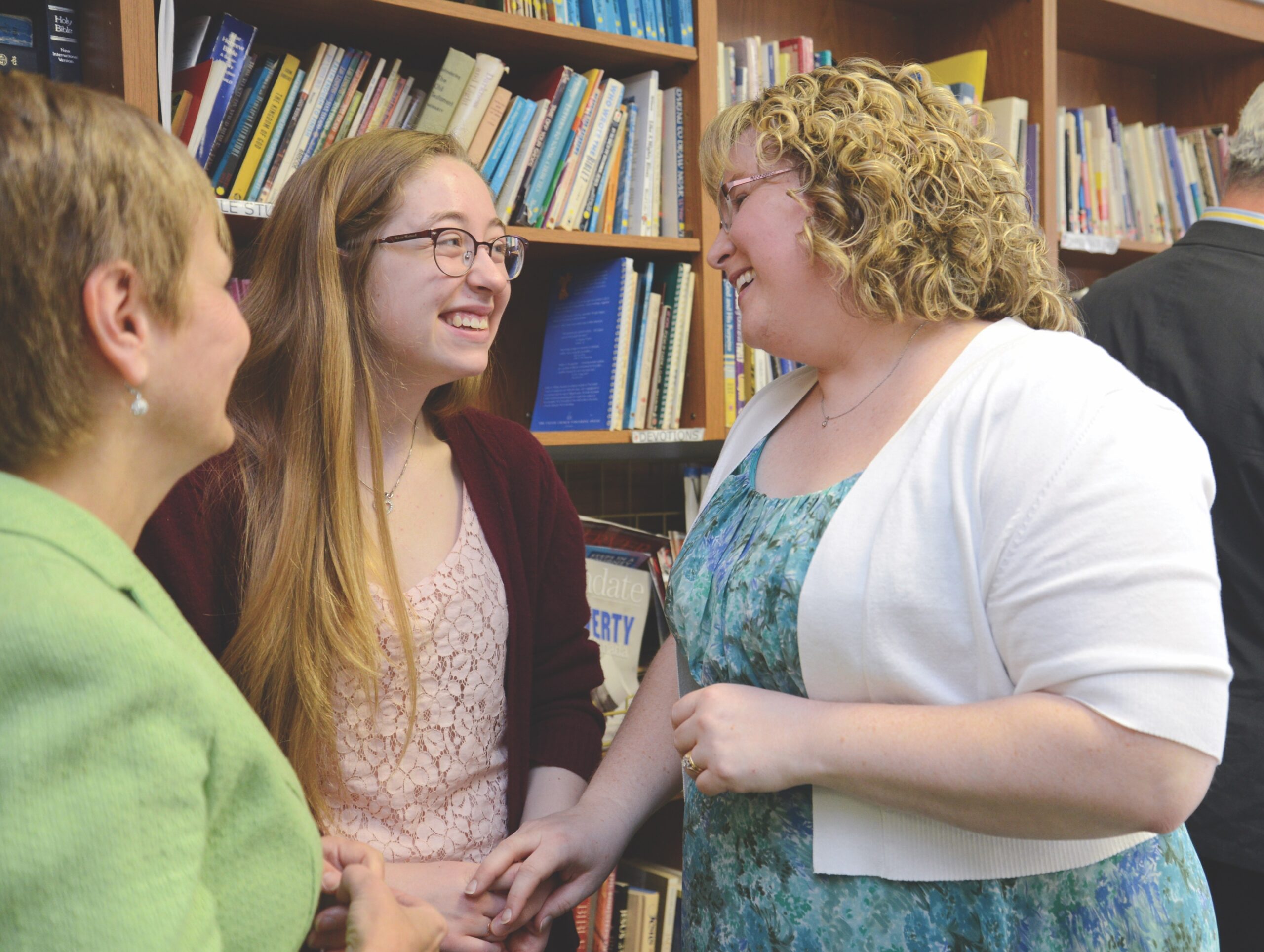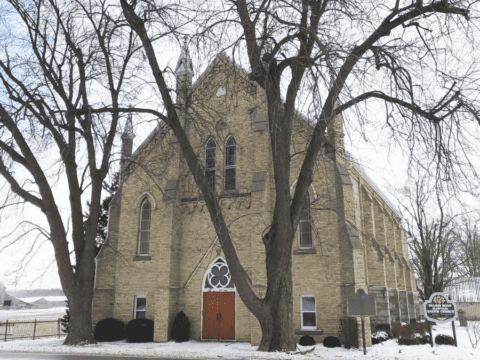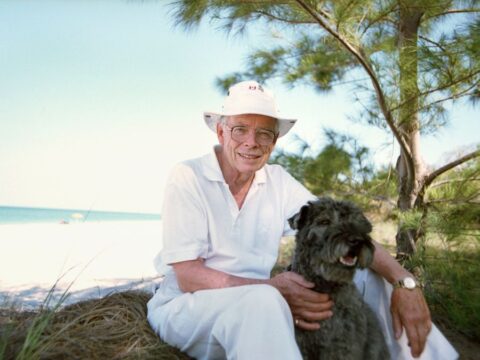When Rev. Molly Bell talks about faith with the students in her confirmation program, she sometimes uses printouts of the cartoon South Park, along with other representations of Jesus in pop culture. From Renaissance paintings to greeting cards, she’ll scour the Internet for images and lay them out for discussion. Which looks like Jesus to them? Why are there so many cultural representations of him, and why the differences?
Bell has been hosting activities like this at Orleans United in Ottawa for almost 10 years now. Another favourite is writing out 99 different names for God and asking students to circle the ones they relate to and others they don’t quite understand.
You may unsubscribe from any of our newsletters at any time.
Across the United Church, the heart of confirmation is the same: a profession of faith that solidifies full membership in the denomination. It’s typically geared at youth starting from age 13, though it’s certainly possible to be confirmed as an adult. The way each church gets there is an expression of its congregation’s needs and personality. Here are some tips from Bell and others on planning a productive confirmation program.
Be Flexible
Last spring, Rev. Anne Hines was in a bit of a crunch. On the second year of a placement in north Saskatchewan, she found herself running the confirmation program for three regional congregations: Beechy, Lucky Lake and Birsay United. The problem was, it was seeding season, and most of the teens signed up had packed schedules helping their families with the fields.
Hines had only a month or so to work with and had never run a program like this before. “I needed to make it much more compact to fit it into their schedule,” she says. Rather than co-ordinate a season-long program that would require plenty of scheduling (and potential absences), she designed a program that could be completed in four 90-minute sessions.
Bell has found that for her congregation, a mentorship model works best. The six to 12 youth who sign up each spring get paired up with a volunteer to meet weekly for discussions and activities about faith. They can set their own schedules and locations and meet on their own time.
“Rather than having one person coming to the front of the class to teach, this engages them more and helps them find their place in the congregation,” she says. “The cool thing is that at the end of it all, you have families [connected] who were never connected before. The younger people develop relationships with other congregation members out of their own right.”
At Port Nelson United in Burlington, Ont., youth ministry developer Jay Poitras leads a similar mentor-based model that’s mixed into group meetings and runs over two years. “I think what makes the program’s length work for our church is that confirmation is viewed as a whole-church program,” he says. “It’s not a separate entity.”
Think outside the text
Aside from guides like Leap in Faith, which the United Church published in 2004, Bell says there are few text resources that are theologically compatible with the United Church. And often, tactile can be better. “Just starting with something like a discussion about the Holy Spirit — even as a minister with theological language — that’s a hard discussion to have,” she says. “It’s easier to have practical things to do.”
When Rev. Elise Feltrin worked at Grace United in Thornbury, Ont., she would take a group of the congregation’s youth to Toronto every spring for a field trip. The Amazing Faith Seekers, as they were called, would visit religious centres across the city, looking for similarities in how others worship and seeing faith in its many iterations: a Jewish synagogue, a Hindu mandir, a Buddhist temple.
“Being in a rural area, all kids see is Christianity,” says Feltrin, who now serves St. Andrew’s United in Bayfield, Ont. The city trip “made a huge impression. They’d notice the sensory elements to how we worship; the smells and styles.”
Hines structured each of her 90-minute sessions around a theme. The first, for example, was focused on God and connection. Participants played dominoes as an icebreaker and looked at baby photos of each other. What connected them to the tiny child they saw in the photo? “They started talking about their memories and their feelings and their sense of identity,” says Hines, now at Emmanuel Howard Park United in Toronto.
Give them the wheel
Not every student who goes through a confirmation program will decide to get confirmed at the end — and that’s as it should be. Feltrin’s second-last session was always a one-on-one talk with the youth. Over cookies and tea, each student would tell her about his or her experiences with the program, and voice questions for which they still didn’t have answers. “Some knew, right then, that they wanted to be confirmed,” she says. It was important to foster an environment where students knew it was okay to decide otherwise.
Bell agrees that students need the freedom to make a choice. “There’s got to be that out,” she says. “If at the end of the program you look at the questions you’ve asked yourself and feel they’re not something you can say yes to right now, that’s a mature decision. If [students] don’t feel like they have a say in it, then there’s no real ownership on their part.”
Focus on the big picture
“I think for meaningful engagement of exploring Christianity, for students to feel safe, there have to be relationships,” says Poitras.
Every year, he notes, students come into the program from different social cliques or stages in their lives. Bridging those gaps ensures that the experiences of the sessions last well beyond confirmation itself.
Feltrin agrees: many students from her first year of the program still stay in touch. The summer after their confirmation, they organized a group camping trip.
“There are precious few rites of passage in a teenager’s life that are positive,” says Bell. Your first date, first kiss, applying for college or university, going to prom — they’re milestones that don’t always go the way movies tell us they will.
“This is an opportunity for youth to feel celebrated, and feel like they’re going toward this step of adulthood in a way that we can all really celebrate.”
***
This story first appeared in The United Church Observer’s May 2013 issue with the title “Your best confirmation class ever.”













